In a fortnight of escalations, the Iran missile attack on Israel is unlikely to be the last one
analysis
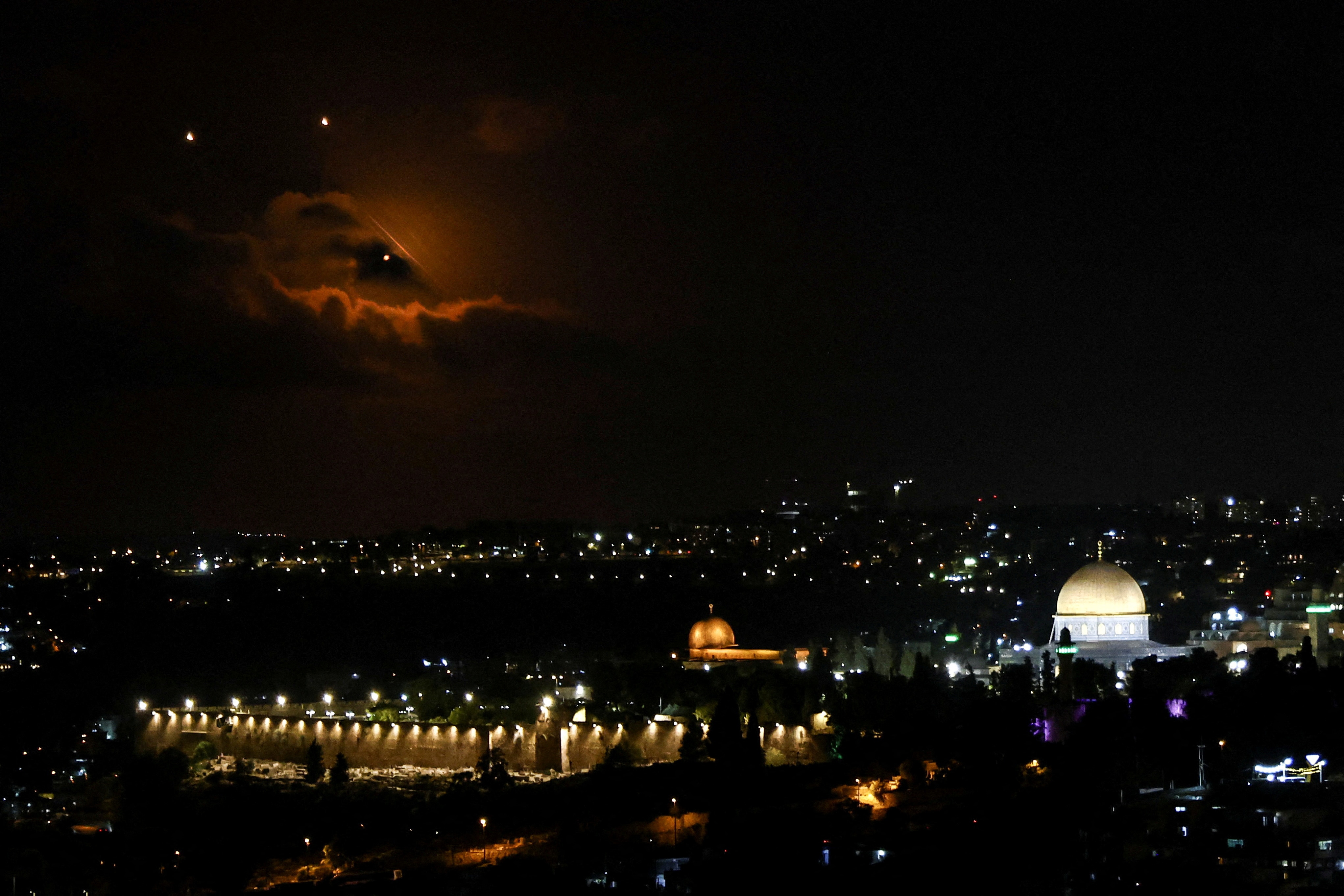
Projectiles fly through the sky, after Iran fired a salvo of ballistic missiles at Israel, as seen over the Dome of the Rock in Jerusalem.
In a fortnight of escalations in the Middle East, this missile attack was another big one.
Exploding pagers and walkie talkies in Lebanon — both attributed to but neither claimed by Israel.
After that, massive increases in bombings by Israel on Lebanon, assassinating the long-time Hezbollah leader, Hassan Nasrallah.
And on Monday, confirmation Israeli troops had crossed the border into Lebanon.
Did Israel go a few steps too far for the Lebanese militant group's main backer Iran?
The assassination of Nasrallah shifted the power dynamic in the region, said Jonathan Panikoff, a former US intelligence officer whose expertise lies in the Near East.
"My first reaction to that was clearly something in the Israeli calculus has changed," the director of the Scowcroft Middle East Security Initiative at the Atlantic Council's Middle East Program said.
"This was really a culmination of what was ultimately a two-month effort to eliminate the most senior Hezbollah commanders in a manner that would fundamentally undermine the command-and-control structure of the group.
"Israel almost certainly accomplished that. The bigger question, though, obviously became what happens next?"
We got the answer to that on Tuesday night when Iran struck.
It fired around 200 rockets and ballistic missiles directly at Israel and said it was in response to the killings of Nasrallah and Hamas leader Ismail Haniyeh.
Israeli officials are still assessing the situation. It's much vaunted aerial-defence systems, like the Iron Dome, Arrow and David's Sling, seemed to largely do their job.
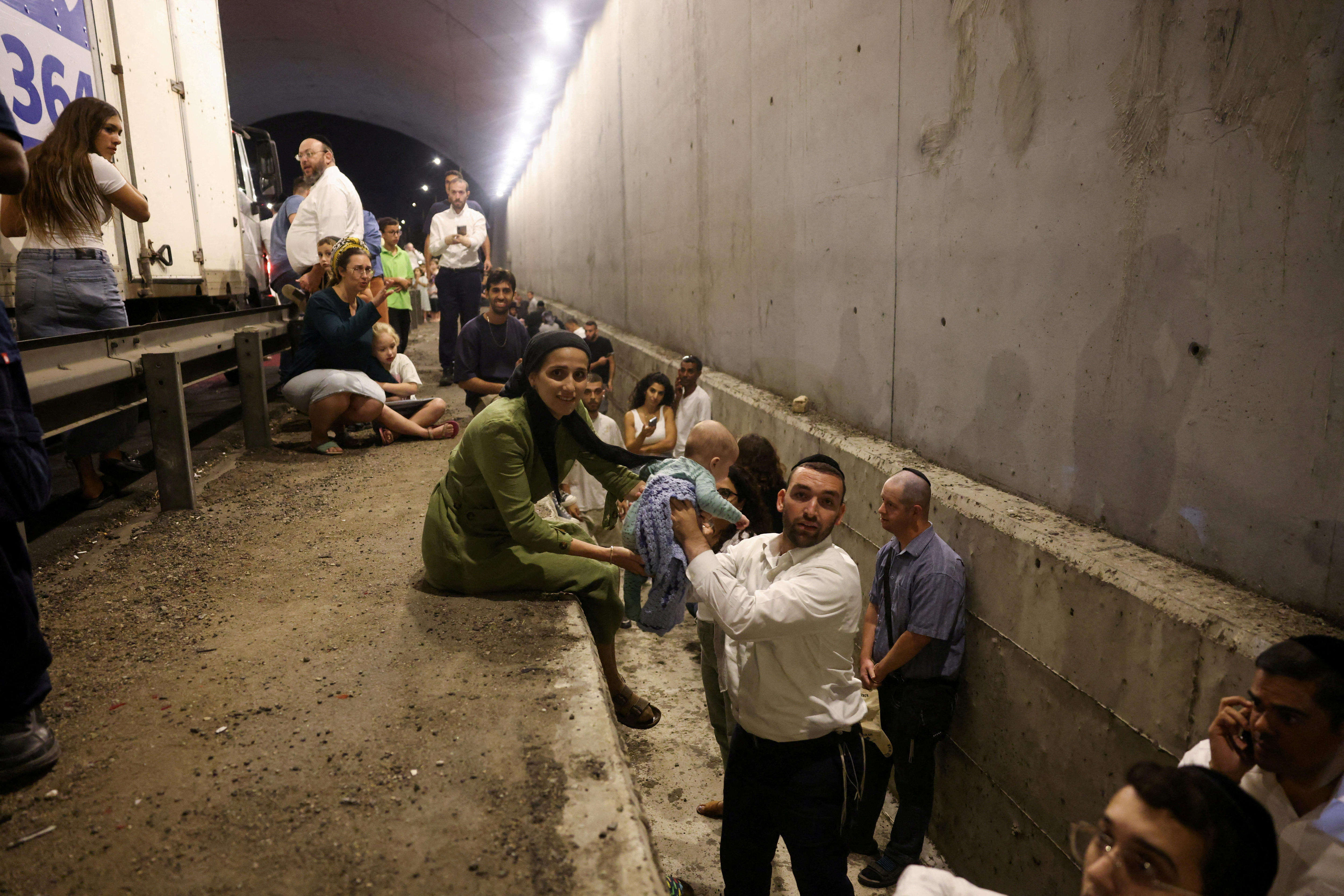
People take shelter during an air raid siren after Iran fired a salvo of ballistic missiles, in central Israel.
Iran has warned its sworn enemy not to respond, but that appears unlikely.
Mr Panikoff said while it is clear there could be a new balance of power in the region, exactly what that will look like remains to be seen.
"That's because it's going to be predicated on whatever conflict is about to come, fundamentally," he said.
Some argue Israel's change in approach has backed Tehran into a corner.
Its proxy groups Hamas in Gaza and Hezbollah in Lebanon are severely weakened after 12 months of fighting — which have also caused high numbers of civilian causalities — and with that, its influence in the region has also diminished.
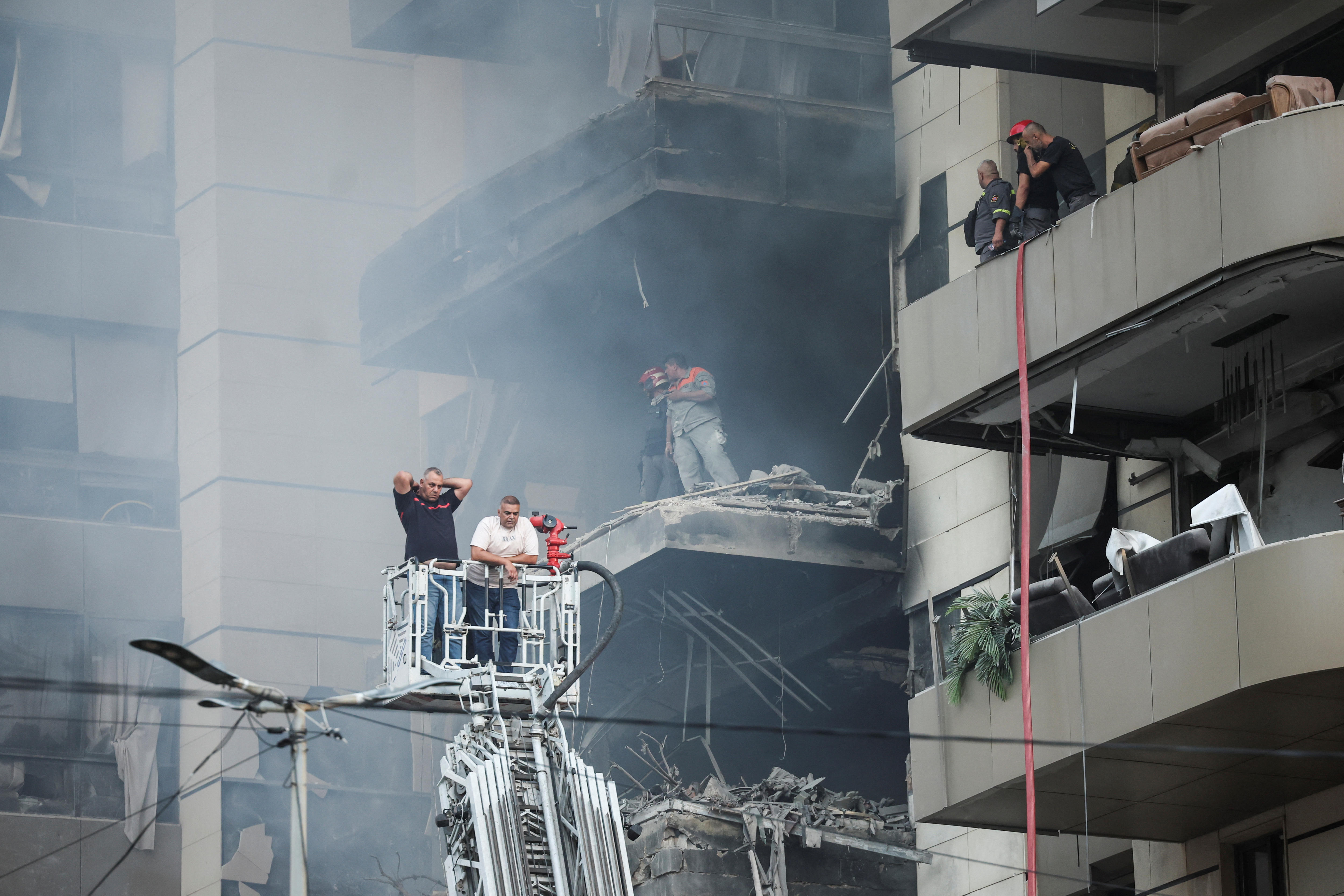
Rescuers work at a site of an Israeli strike in south Beirut.
Iran's Supreme Leader Ali Khamenei had two options, either do nothing, risk looking weak, and reinforce the feeling that his country is abandoning the militant groups it sponsors.
Or he does something, like fire hundreds of missiles to a nuclear-armed neighbour with a track record of hitting back, hard.
Many would argue, it's lose-lose.
'Crown jewel proxy' worried it was deserted by Iran
We've been here before — once.
In April, Iran attacked Israel directly for the first time. That was also in retaliation after Israel had earlier targeted the Islamic republic's consulate in Damascus, Syria, killing at least seven.
It was an historic moment that saw hundreds of missiles rain down around Israel. The US, neighbouring Jordan and Israel's air defence system managed to make sure the vast majority of them did not land, with the help of intelligence from Saudi Arabia.
Israel followed that up months later with the assassination of Haniyeh in the Iranian capital and senior Hezbollah commander Fuad Shukr in Beirut. Both of which came with an expected Iranian response.
Hezbollah retaliated separately with increased air strikes deeper into Israel while Iran held back.
A few weeks later brings us up to two weeks ago, when Israel increased its attacks on Hezbollah and Lebanon.
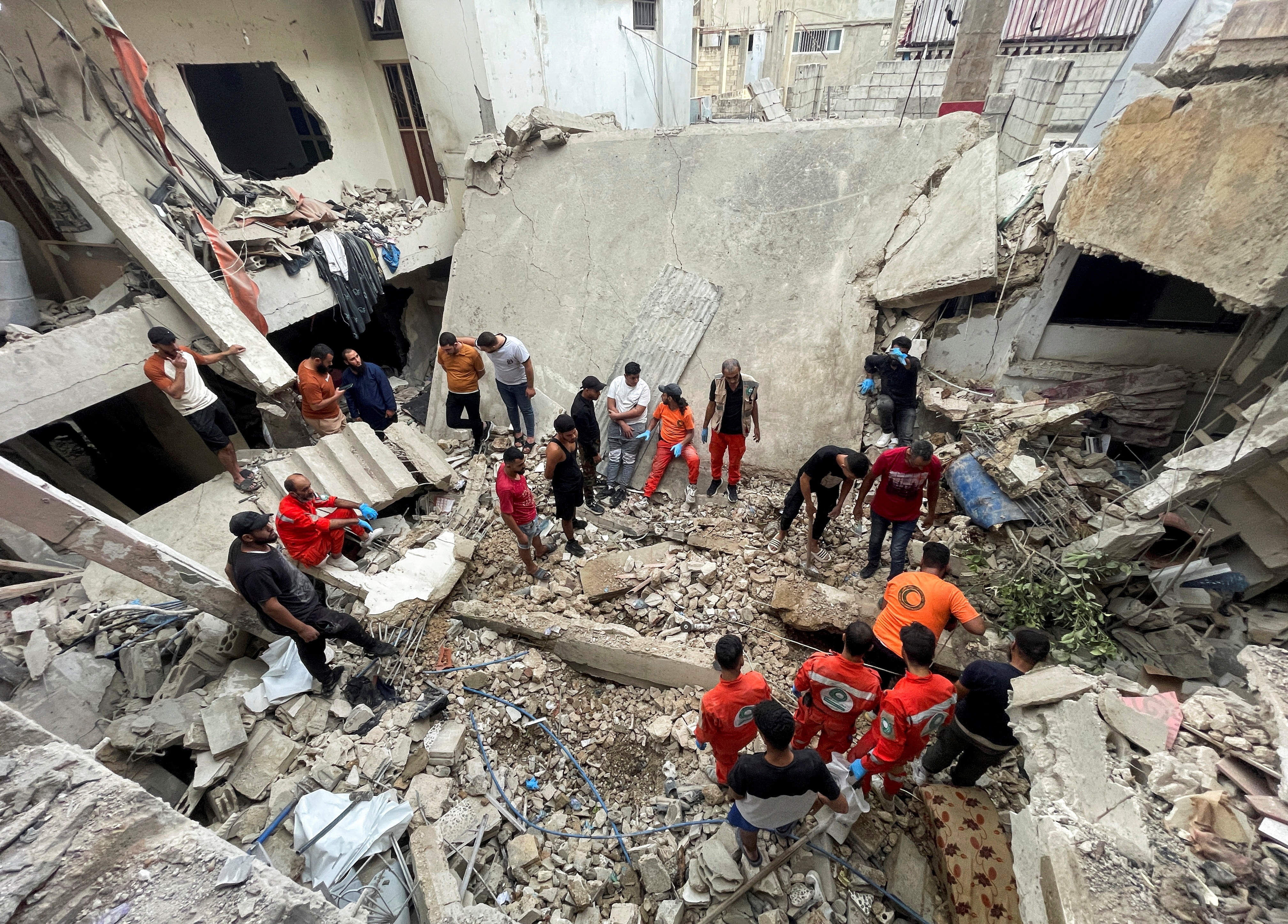
Rescuers and people inspect the site of an Israeli strike that hit a building in Ain al-Hilweh refugee camp near the southern city of Sidon, Lebanon.
Avi Melamed, a former Israeli intelligence official who served as an Arab affairs adviser to two mayors of Jerusalem, said these attacks weakened Iran's influence.
"Israel has made a decision that this is the right time and opportunity to seriously address the most significant threat that it has been facing for the last couple of decades. And this is Hezbollah," he said.
"And I think that Israel has made the right decision by seizing that moment and actually and significantly diminishing the ability of the Iranian proxies."
Holly Dagres, a non-resident senior fellow specialising on Iran at the Atlantic Council, agrees.
"Hezbollah is the crown jewel proxy of the Islamic Republic, and it was always one of their main defences against Israel," she said.
"And with it being severely weakened and Iran up until today not responding, there was a lot of chatter and anger from Hezbollah and worry that they had been deserted by Tehran."
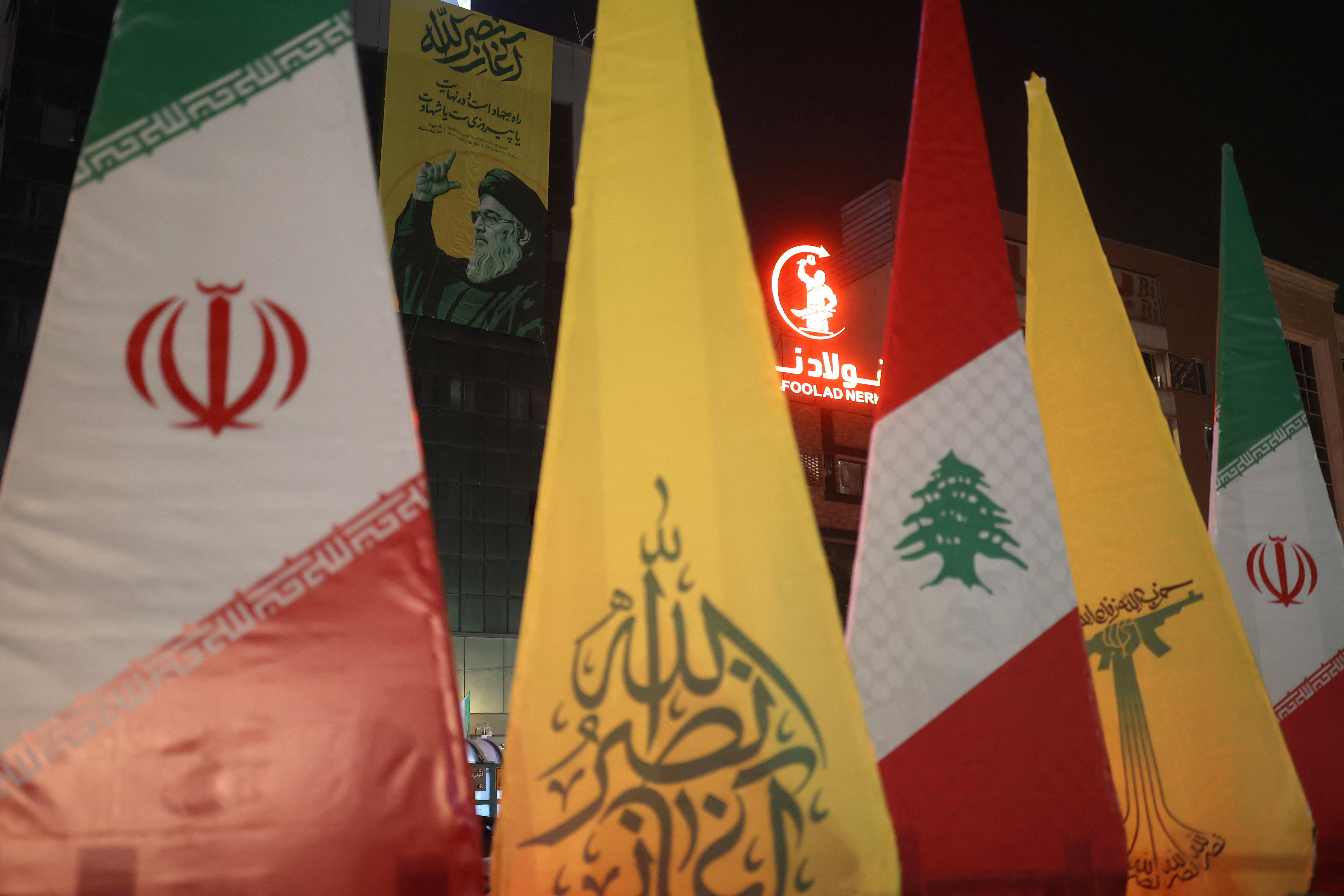
A billboard with a picture of the late Lebanon Hezbollah leader Sayyed Hassan Nasrallah in Tehran.
After Iran's attack in April, the US called for calm, and told Israel to "take the win" of shooting down pretty much all of the missiles, rockets and drones sent their way.
But Israel did respond. It sent just one missile. But it was where it sent it that was significant: to an Iranian nuclear site, where it struck one of the country's most advanced air-defence systems.
Nevertheless, the direct fire between the two nations stopped there but continued with the assassinations and proxy fire.
This time, things could be different.
US President Joe Biden says he's already in talks to determine what an appropriate response would look like.
Shortly after Iran's attack on Tuesday, Israel's chief military spokesman, Rear Admiral Daniel Hagari described it as "severe and dangerous".
"There will be consequences," he said.
In a fortnight of escalations, it's hard to see this being the last one.
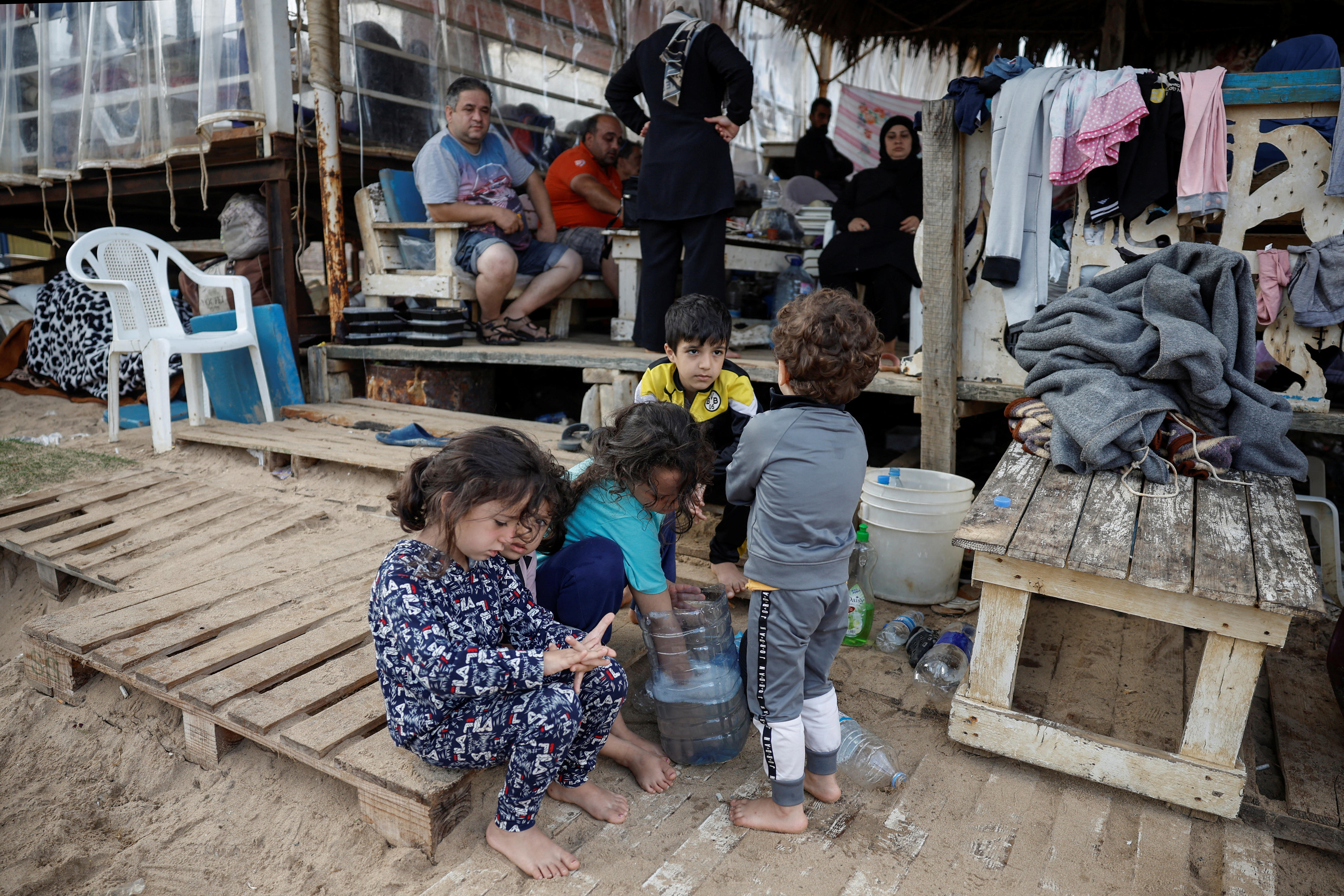
Displaced children play at a makeshift encampment where scores of displaced Lebanese live at a beach in Beirut.
By:https://www.abc.net.au/news/2024-10-02/iran-missile-attack-israel-unlikely-last-middle-east-escalation/104421390(责任编辑:admin)
下一篇:Kamindu Mendis putting up Don Bradman-style numbers and fast-tracking Sri Lanka's return to cricket's elite
 Socceroos rescue a point
Socceroos rescue a point  Wallabies thrash Wales 52
Wallabies thrash Wales 52 Jake Paul beats Mike Tyso
Jake Paul beats Mike Tyso Live updates: England vs
Live updates: England vs  US election 2024: Donald
US election 2024: Donald  US election live: Kamala
US election live: Kamala
- ·North Korea's latest weapon agains
- ·Hezbollah says Israel 'cannot impo
- ·Inside the rise of US oligarchs and how
- ·Thailand's worst suspected serial
- ·Tabi shoes are turning heads from Holly
- ·FBI arrests Florida man planning attack
- ·Illegal immigrant gets life sentence fo
- ·Bibles, water, watches and sneakers: Do
- ·North Korea's latest weapon against
- ·Hezbollah says Israel 'cannot impose
- ·Inside the rise of US oligarchs and how i
- ·Thailand's worst suspected serial ki
- ·Tabi shoes are turning heads from Hollywo
- ·FBI arrests Florida man planning attack o
- ·Illegal immigrant gets life sentence for
- ·Bibles, water, watches and sneakers: Dona
- ·US to give Kyiv anti-personnel landmines
- ·An arrest warrant for Benjamin Netanyahu
- ·One of Vietnam's high-profile politi
- ·Shanghai Walmart Attack: A Man Randomly S
- ·South Korean police officers jailed over
- ·Cambodia publicly shames maid deported af
- ·North Korea to use all forces including n
- ·Philippines condemns China attack of Viet
- ·US adds 2 more Chinese companies to Uyghu
- ·North Korean defector steals South Korean
- ·Malaysia deports Cambodian worker for cal
- ·Rebels battle for Myanmar junta’s weste

